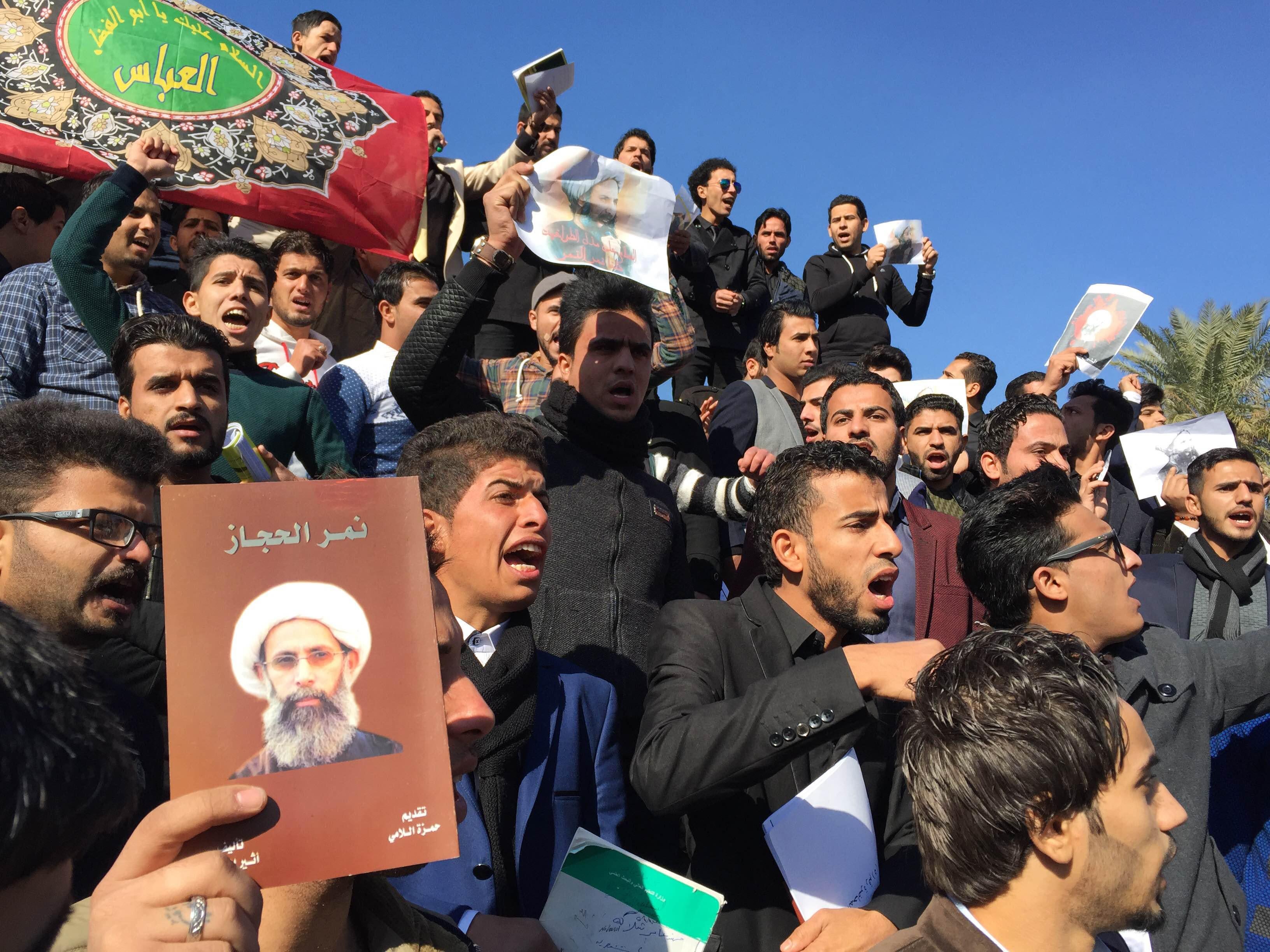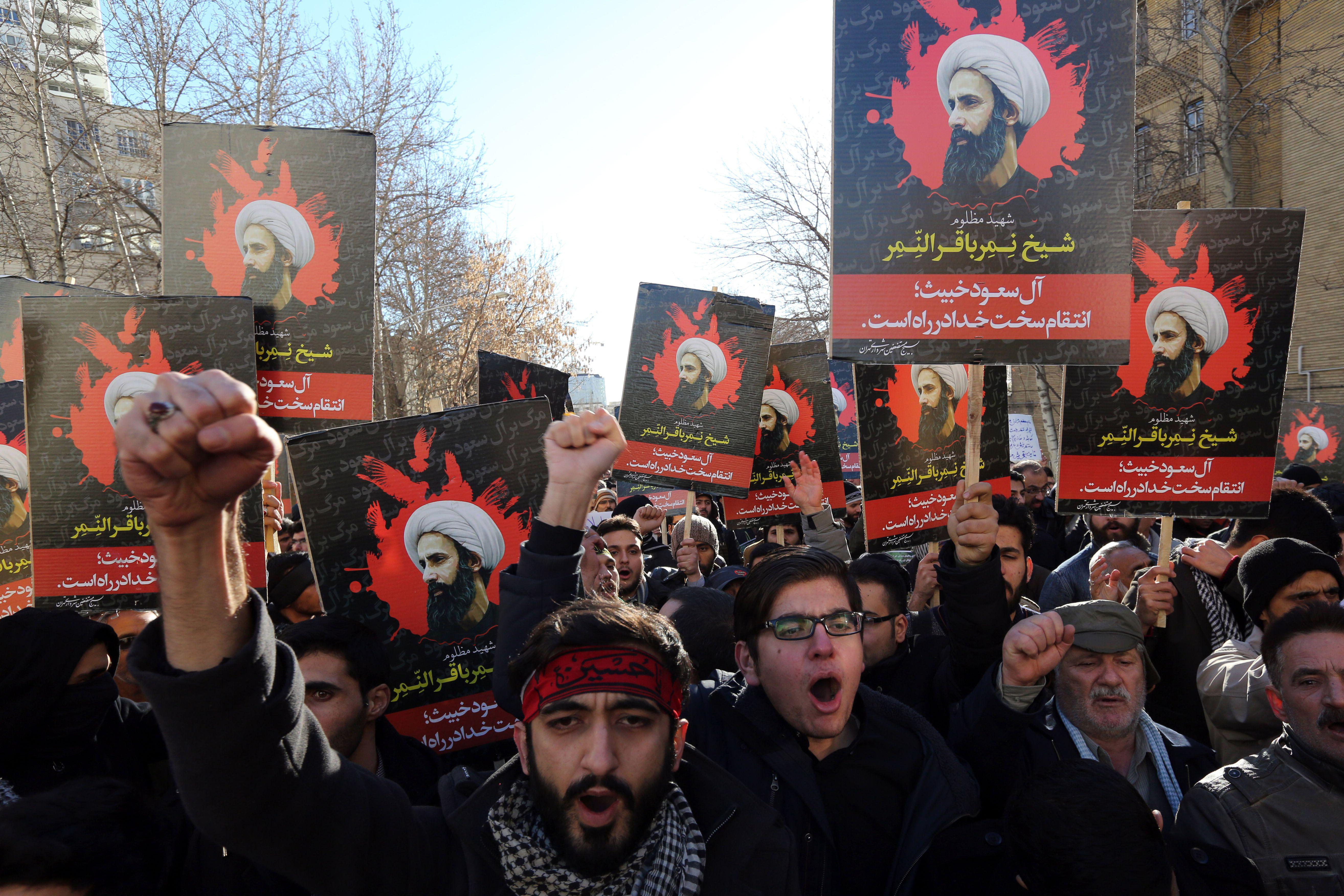Saudi Arabia cut diplomatic relations with Iran as tensions between the two long-time regional rivals reached new heights amid concern in Washington about what it could mean for the fight against ISIS, as well as other conflicts in the region. Saudi Arabia announced on Sunday that Iranian diplomats had 48 hours to leave the kingdom shortly after Iran’s top leader harshly criticized the execution of Shiite cleric Sheikh Nimr al-Nimr. The Saudi Foreign Ministry said its diplomatic staff was already being evacuated from Iran. The move was surprising because after protesters stormed the Saudi Embassy in Tehran, the Iranian government appeared to be trying to quell tensions.
Saudi Arabia appeared to be upping the ante as the execution of 47 people exposed the deep sectarian divisions that exist in the region. Demonstrators took to the streets in countries from Bahrain to Pakistan to condemn Nimr’s killing and call for the downfall of the Saudi royal family. Foreign Minister Adel al-Jubeir characteried the attack on the Saudi embassy as just the latest in “a long record of violations of foreign diplomatic missions.” In Iran, Deputy Foreign Minister Hossein Amir-Abdollahian said that Riyadh would not be able to cover up “its major mistake of executing Sheikh Nimr” by cutting diplomatic ties.

Photo by AHMAD QASEM/AFP/Getty Images
Western governments quickly became concerned the abrupt escalation of tensions foreshadow “a new year of growing hostilities in the regional battle for influence between the Sunni kingdom of Saudi Arabia and Iran, the dominant Shiite power in the Middle East,” notes the Wall Street Journal. The severing of diplomatic ties comes at a particularly bad time considering that the United States and other Western countries were “hoping that even limited cooperation between the two powers could help end the crushing civil wars in Syria and Yemen and ease tensions in Iraq, Bahrain, Lebanon and elsewhere,” points out the New York Times.
Although the U.S. State Department publicly called for calm, White House officials were privately critical of Saudi Arabia for moving forward with the execution that they knew would spark regional upheaval. “This is a dangerous game they are playing,” a U.S. official tells the Washington Post. “There are larger repercussions than just the reaction to these executions,” the official added, noting the fight against ISIS as an example. The State Department had reportedly been warning Riyadh for months about the potential for regional strife if it went ahead with the executions.
Saudi Arabia, however, made clear it is putting its foot down because “enough is enough,” as a “source familiar with the Saudi government’s thinking said,” reports Reuters. “Again and again Tehran has thumbed their nose at the West. They continue to sponsor terrorism and launch ballistic missiles and no one is doing anything about it.” The words seem to suggest Riyadh isn’t just angry at Tehran, but also Washington for failing to stop what it sees as Iran’s growing influence in the region. That attitude exemplifies how Saudi Arabia has taken a more aggressive stance ever since King Salmaan came into power last year.
